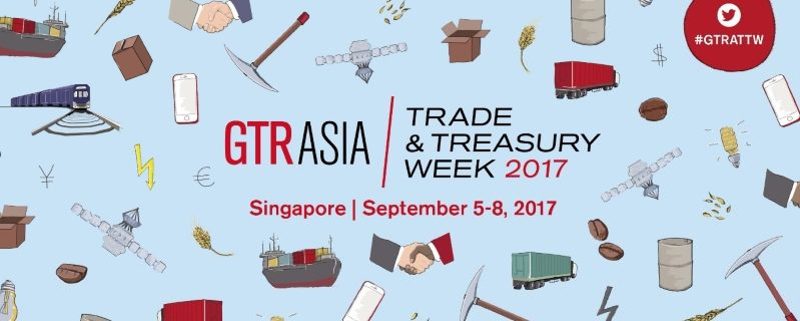Ian Kerr, CEO, Bolero International
I may be biased but the level of interest in trade digitisation across Asia is reaching fever pitch.
The evidence was everywhere at GTR Asia – a two-day event in Singapore that attracted more delegates than ever, with some of the biggest corporate names in the region. Samsung, BP, Glencore, Goodyear, HSBC and Reliance Industries were just a few of the high-profile companies attending.
In fact, it seems that every day this region witnesses a new digitisation initiative that marks just how much intellectual effort is going into the topic and just as importantly – how senior figures inside large corporates and banks increasingly understand all the benefits in terms of speed, security, productivity and accuracy that the digitisation of trade documents delivers.
It’s why GTR Asia was such a great event where we could get down to discussing use-cases and real-world applications. This is our expertise at Bolero. Our chairman Daniel Cotti, for example, took part in a panel discussion about readiness for “the era of fintech-enabled trade finance”.
This inevitably covered blockchain, but what was interesting to see was the increasingly widespread understanding that this open-source technology won’t be a panacea for all business ills. Unless corporates have already embarked on a digitisation strategy that has been properly thought through, any plans to incorporate blockchain technology are likely to fall flat. A digitisation strategy must come first.
The panel nonetheless proved that blockchain has the capacity to be a great catalyst for change, even if it is not the answer to every question. Bolero will continue to be at the heart of this exciting debate about real-world applications, using our extensive knowledge and experience of leading the journey to trade document digitisation around the globe.
My own direct contribution at GTR Asia covered this disruptive aspect of digitisation, examined from different industry perspectives. In a wide-ranging debate we covered the practicalities and real-world applications including those that have not fared so well, such as the Bank Payment Obligation. This has failed to find its niche in the world of trade finance, pointing to how first and foremost we need to consider the needs of buyers and sellers, and not just banks, as digitisation advances.
The enthusiasm for digitisation is very intense in the city of Singapore, which remains one of the world’s greatest trade hubs. The city state’s government is not resting on any laurels however, and realises that change must be led as well as accommodated – which explains its plans to shift port activities from their current location to Tuas South from 2027.
These ambitions are very much driven by digitisation. I had very useful discussions at GTR with some of the experts behind the Singapore government’s National Trade Platform, which is a customs-led project helping businesses streamline work processes to reduce the inefficiencies of manual trade document exchange, as well as extracting analytical insights from their trade data. It is an area of government activity where Bolero has a lot of expertise to offer.
The event was also a good opportunity for me to cement our partnership with Reliance Industries, introducing them to some new customers and swapping notes on trends and prospects.
But it wasn’t just at GTR that I found the momentum for trade digitisation building. Visiting our partners in Japan, I could see that the conservatism that has contributed to marginal growth in the country is now being shed. A country famed for its vitality, inventiveness, practicality and attention to detail is now actively showing interest in digitisation and I was invited to make a presentation to The American Chamber of Commerce in Japan, which promotes trade between the two countries.
Judging from the enthusiastic reception of our message here and at GTR, the message about trade digitisation being safer, smarter and faster is getting through. There is still much more to do, but increasing numbers of businesses and governmental organisations understand how digitisation will work to everyone’s benefit in trade finance.
